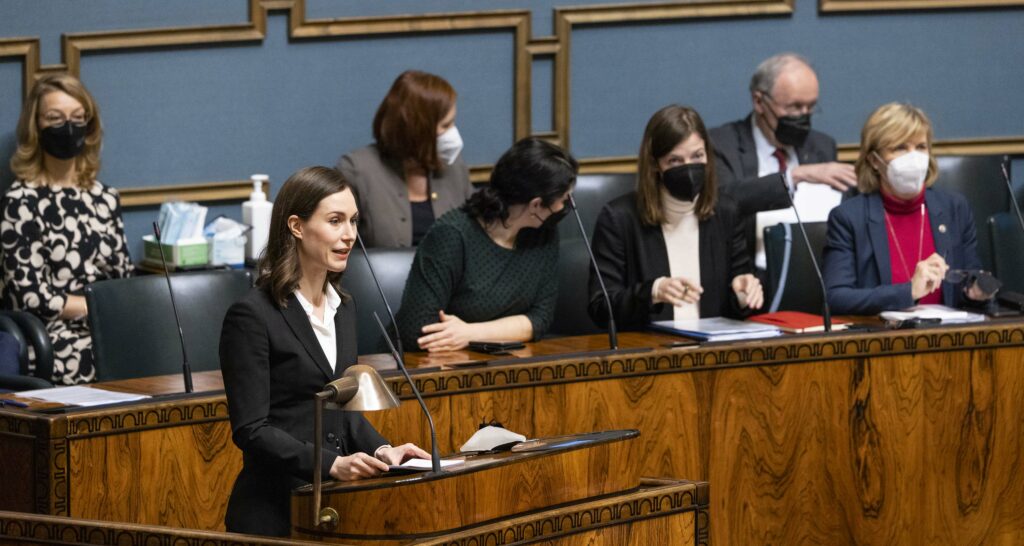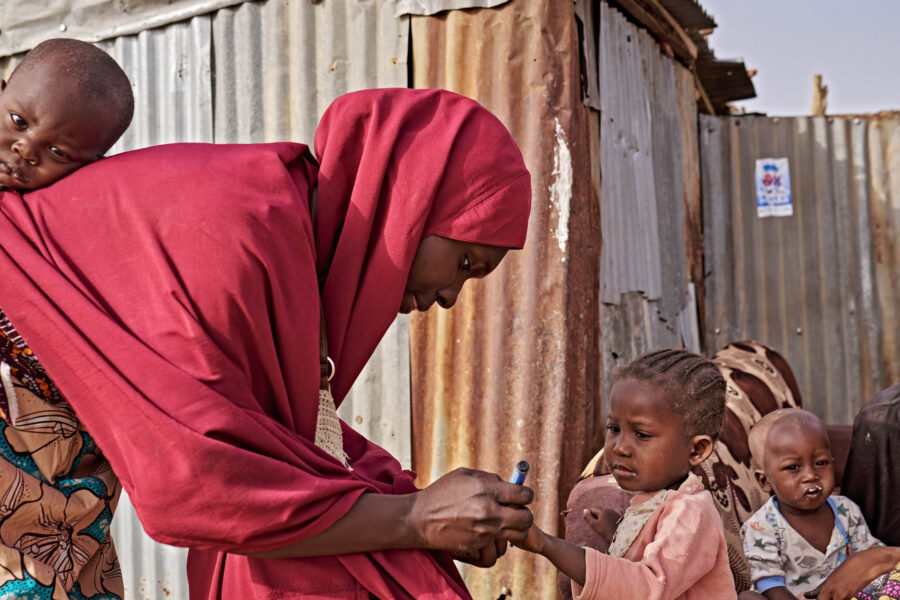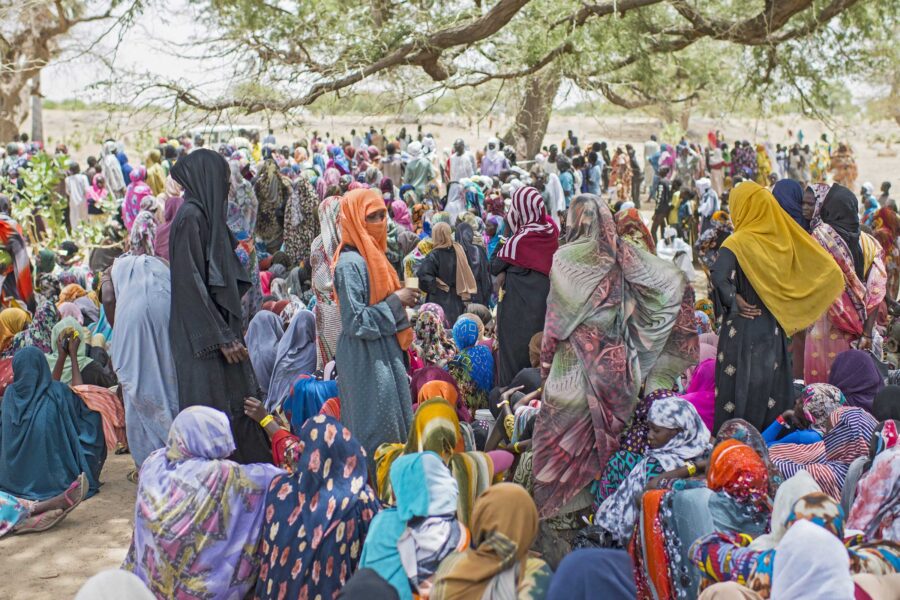Getting more women in politics
Just one in four parliamentarians today are women. Yet, as responses to recent crises have shown, countries with more gender balance among their politicians often fare better than those dominated by men. How do we achieve genuine gender equality in politics?
Gender — Global

How representative are our societies today? As a woman and as a parliamentarian, I must say: “we could do better.” At a time when the world is facing multiple interlinked crises, governance needs to reflect all of society, and be forward-looking and efficient.
While the 2030 Agenda for Sustainable Development clock is ticking, our decision-making structures seem to have been left behind. For parliamentary democracies, this can constitute a breaking point. Male-dominated structures are in no position to respond to the challenges our world is facing today. Gender equality, and the empowerment and participation of women in leadership and decision‑making roles are essential aspects of policymaking. They will ensure that no one is left behind – a key appeal of the 2030 Agenda.
Parliaments have a fundamental role in ensuring that their representative, lawmaking, and scrutiny functions work for the benefit of all. Gender equality constitutes by definition an integral part of any society that wishes to respond meaningfully to the challenges ahead, and of any parliament that claims to represent all the people.
Today, however, women make up only 26.5% of parliamentarians globally, according to the IPU. Data suggests that at the current progress rate of 0.6 percentage points per year, it will take 40 years before parliaments achieve gender equality.
In the meantime, we are beginning to see what genuine gender equality can bring to crises such as the COVID-19 pandemic. Countries led by women were more effective in managing the pandemic, guided by empathic leadership and an evidence-based decision-making approach. This is also clear when we look, for example, at peacemaking and UN Security Council Resolution 1325 on women, peace, and security. Evidence accumulated over 23 years shows that women’s meaningful involvement at all stages of a conflict cycle is essential for achieving long-lasting peace and stability.
On the flip side, we know that when women are excluded in decision-making, policy outcomes are likely to be ineffective. Better inclusion and representation lead to stronger and more resilient democracies.
What we’ve learned so far
Gender equality in politics is not only about numbers, and equal parliamentary representation is only one step in true gender-sensitive policymaking. The positions that women occupy in parliaments are also indicative of their influence in decision-making and their ability to set the direction of parliamentary work. Currently, 22.5% of speakers of parliaments are women – significant progress compared with 27 years ago (10.5%), but still lagging behind women’s representation in the wider workplace.
Nevertheless, the full responsibility of gender equality does not lie solely on women’s shoulders. A holistic approach to gender equality in politics is essential and must be prioritized by all political actors: legislators, governments, political parties, and civil society. Shifting the focus from women themselves to the role of institutions and men in giving women access and advancing the gender equality agenda should help to accelerate progress.
Gender parity quotas
Over the past 25 years, the IPU has been lobbying for gender quotas as a key contributing factor for the transformation of politics, and more particularly of parliaments, into gender-sensitive democratic institutions.
In the 48 countries that held elections in 2021, women were elected to 28.6% of the available parliamentary seats. Data also shows that countries with some form of quota elected 31.9% women on average in their lower or single house, while those without quotas elected only 19.5% overall.
Quotas on their own are not enough. They deliver only when accompanied by ambitious targets and strong implementation mechanisms. We must also ensure we adopt some equally important aspects of a successful gender-sensitive strategy, including:
- incentives that encourage political parties to recruit and nominate women
- policies that level the playing field in access to funding
- civil society and media outreach campaigns that raise awareness about the importance of gender equality in politics
Parliament: an enabling environment free of violence
Violence in politics has been central to debates around women’s participation in political processes for many years. According to IPU data from 2016, 44.4% of surveyed female parliamentarians said they had received threats of death, rape, beatings, or abduction during their term of office. Violence and harmful norms can silence women’s voices, block their representation, and hinder their full participation, even when formal institutions and laws guarantee equality. Violence also has a dissuasive effect and undermines efforts to recruit women as candidates.
To tackle this striking phenomenon, an increasing number of countries have adopted laws and policies to eliminate all forms of violence against women in politics. Parliaments and political parties are in a position to adopt policies to combat sexual harassment, including effective complaint mechanisms and penalties for offenders. But perhaps the most essential first step is that taken by political leaders, as it is only when they adopt and maintain a strong message against such phenomena that real progress can take place. If political leaders are not committed, perpetrators will always find a way to bypass and undermine deterring mechanisms. A strong sense of unity between female and male politicians is therefore essential in shaping and promoting an institutional culture that offers a safe and secure working environment for all.
Parliaments are also in a position to set an example of an inclusive working environment. This requires shifting from an environment that responds to the needs of men to one that responds to the needs of all. Women and men parliamentarians have to attend to different caring responsibilities that affect them differently. For example, the prospect of parliamentary debates lasting late into the night or the early hours of the morning may deter women with caring responsibilities from entering politics. Moreover, parliamentary infrastructure is in most cases not adapted to women, especially those who are breastfeeding infants or caring for young children. As parliamentarians we can take several steps to reform male‑centric work practices and structures, and shape a more family-friendly and gender-sensitive work environment.
We have the data, tools, and solutions to make gender equality a reality. What we now need is the political will to make it happen.





